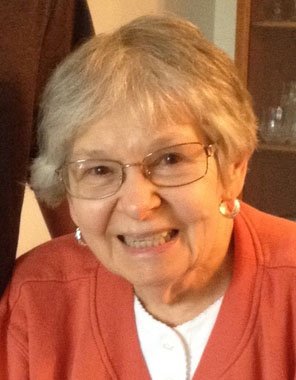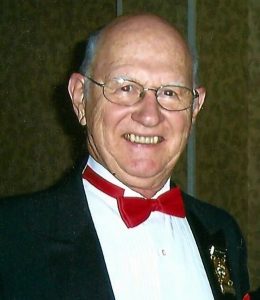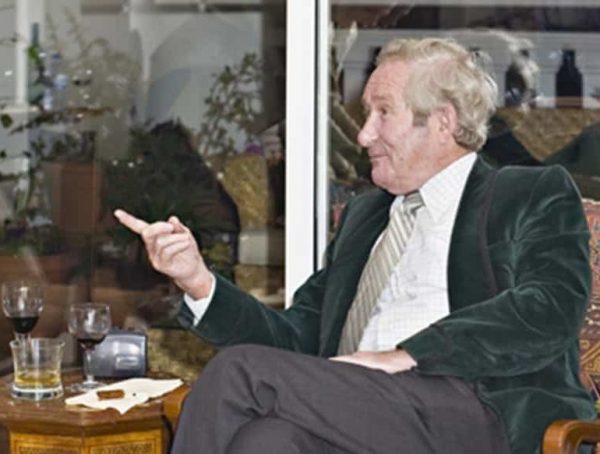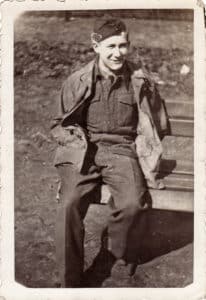Obituaries

Agnes M. Ilisevich
Agnes Ilisevich, 90, of Gibsonia, passed away June 29, 2020. Agnes was born in Scottdale, on August
23, 1929, a daughter of the late Michael and Anna (Hirka) Zerilla.
On June 6, 1959 Agnes married Robert Ilisevich; he survives. She was an active member of St. Agatha
Roman Catholic Church and the Altar and Rosary Society.
Agnes retired from Meadville Medical Center where she was employed as a Registered Nurse. A graduate of Scottdale High School, Agnes was also a graduate of UPMC Mercy School of Nursing. She served as a Brownie and Cub Scout Leader. In the years following her retirement, she and her husband enjoyed many years of traveling together. Throughout her life she was a devoted wife, mother and grandmother. Her hobbies included bowling, knitting, participating in card clubs as well as Silver Sneakers. Her family and faith were very important to her. Agnes will be sadly missed.
In addition to her husband, Agnes is survived by two children Daniel Ilisevich (Kathleen Merlo) of
Potomac, MD, Deborah Ilisevich Feigenbaum (Lionel) of Bethesda, MD; five grandchildren; a sister Betty
Wolfe of Export, a brother Bill Zerilla (Sandy) of Scottdale, seven nieces and six nephews.
Agnes was preceded in death by two brothers Michael Zerilla, Mytro Zerilla, and a sister Anna Mae
Finnerty.
Agnes will be laid to rest in St. Agatha Cemetery, Meadville.

The organizations in which he was a member, active and non-active are BPOE Largo # 2159, American Legion Largo # 119, Eks Lodge #2159 Largo, Polish American Congress, Pope John Paul ll Center, Clearwater.
Alfred B. "AL" Pomianowski
Al was born in Gary, Indiana on July 6, 1932 to Leon and Bernice Pomianowski. He was predeceased by
his parents, sister Irene (Jim Mako), brothers Eddie (Florence), and Leo (Trish). He is survived by his
loving wife of 58 years, Patty, sons Mark (Molly) and Steven (Dawn), daughter Gina (Ronnie Scheffler),
sister Judy (Dr. Chris Paprocki), 7 grands, 3 greats, cousins, nieces & nephews.
Al was brought up in Gary, and moved with the family to Florida in 1948, where he graduated from South
Broward HS. He then enlisted in the USAF and served in the Korean Conflict until 1956. In 1957 he
attended Alliance College in Cambridge Springs, PA. where he and Patty met. He graduated with an AS
degree Applied Science in 1959.
In 1960 he and Patty were married in Chicago and shortly afterwards moved to Hallandale, FL where
they began their family.
Honeywell brought them to the West Coast of Florida where they made their home in Largo. Al furthered
his education at USF where he earned his BA and Master of Education degrees. He taught electronics in
post-secondary school.
Al was a part time Insurance Agent for the Polish National Alliance of the USA. He helped found and
charter Largo Lodge #3189 PNA in 1968. He held many offices in the Lodge. He eventually was elected
to the National Office of Commissioner and held that office for many years. Afterwards, he was elected
as National Director for a short time. Al was very active in the Boy Scouts of America starting with Cub
Scout Leader Pack 465 and moved with his sons to Boy Scout Leader, Troop 465, and St Patrick’s. He
served on the Catholic Committee on Scouting, Diocese of St. Petersburg. He was a member of the
Order of the Arrow and was awarded the St George Emblem.
Al was active in the Florida Fraternal Congress for many years, holding several offices. He attended and
helped organize many of the conventions providing the Honor Guard and Special Honor Guard for
Armed Forces day.
He has been an active member in the Knights of Columbus, Msgr. John McCall Council #4892 Largo,
where he was youth director and conducted the “Hoop Shoot” and “Soccer Challenge” for many years,
and Archbishop Joseph P Hurley Assembly #1448 Fourth Degree where he served as Commander of
the Honor Guard for several years

Aloysius A. Mazewski
Aloysius A. Mazewski, Jr., beloved husband of Janice, nee Budzinski; loving father of Alaina, Brittney,
Candice, and Douglas; dearest son of the late Aloysius and Florence; dear brother of Marilyn Mazewski
and the late Joseph Potasiak; cherished son-in-law of Waclawa and the late Stanislaw Budzinski;
treasured nephew of Theodore Heider; fond brother-in-law of Wesley and Ursula, Vincent and Anna,
Casey, and Stanley Budzinski and their families; loving uncle, cousin, and friend of many.
After family, Al was a human rights commissioner and bank examiner for the state of Illinois, and for many years, a board member of the Polish National Alliance and the Northbrook School District 27. Just like Al Sr., he supported the Polish American community here and at large. He was a die-hard Cubs fan and enjoyed watching the Hawks, Bears, Bulls, and golf. His love of Star Wars was a force beyond. He had a remarkable upbeat attitude and a charming sense of humor, truly a “good” man.


Andrew Borowiec
Brains and charm don’t always go together but the journalist Andrew Borowiec, the author of a highly
praised memoir of wartime Poland, Warsaw Boy, that was translated into Italian, Greek and Polish, had
plenty of both. “The best ever account of what it was like to be young and fighting in the Warsaw
Uprising,” declared The Observer’s Neal Ascherson.
As Andrew aged, his public persona increasingly resembled a character that might have stepped from
the pages of a Joseph Roth novel, a gallant beau sabreur escaped from the debris of the AustroHungarian Empire in which until 1918 his father had indeed served as a German speaking Polish
colonel.
The colonel’s son first came to live in Cyprus in 1974 when he was in his mid-forties and he and his
English second wife Juliet started their married life together in a house overlooking Kyrenia harbour.
They almost lost the first draft of what would become Warsaw Boy in that summer’s Turkish invasion
though at the time, as more contemporary reports of rape and massacre abounded, they were more
concerned with making a hiding place for Andrew’s teenaged daughter Lisa who had joined them for her
school holidays.
Apart from an interlude in Washington DC, where he worked for the Washington Times, for the best part
of the next 40 years he would be based in Cyprus from where he travelled to cover the fighting in
Lebanon and the former Yugoslavia. He was last shot at in Croatia when he was 63. In the 1990s he
often contributed to the Cyprus Mail and came to an arrangement with its editor to be paid in cases of
wine.
After the Turkish occupation of northern Cyprus the Borowiecs moved to a flat in Greek Cypriot
controlled Nicosia where they entertained lavishly. Dressed in a green velvet smoking jacket Andrew
would greet his lady guests with a short bow and a kiss on the hand while his music system played
various lively military airs. These invariably included the Radetzky March, Strauss’ celebration of the
eponymous field marshal’s defeat of the first Italian rebellion against Viennese rule and the title of Roth’s
best known work. In winter there was always a blazing log fire though after the chimney ignited Juliet
tried to curtail them.
Those gathered around the Borowiecs’ table on these cosy, bibulous and often cosmopolitan occasions
were quite likely to be addressed by Andrew in their native French, German, and occasionally Russian.
English, spoken with a faint and somewhat gravelly American accent, was his first language. He would
earn his living with it for over 50 years and mostly dreamed in it.
Yet, unlike the French and German he acquired in childhood, he hadn’t spoken a word of English until he
had just turned 16 and arrived at a large international prisoner-of-war camp near Berlin. His first English
teachers were the captured British army medics who were treating the mortar shrapnel wounds he had
received towards the end of the 63-day Warsaw Uprising.
Andrew was hit the day after his 16th birthday while firing at Germans advancing on the manhole cover
that was going to be the hatch to his next escape route through the city’s sewers. Six years later his
English was good enough to talk his way into Columbia University’s Graduate School of Journalism in
New York. This and the French and German he had learned as a child, got him a job with Associated
Press where his byline was anglicised from Andrjez to Andrew Borowiec. By1956 he was part of the
news agency’s Paris bureau from where he covered wars and revolutions in francophone former
colonies such as Algeria, the Belgian Congo and Vietnam.
But other people’s wars never matched his memories of growing up in a wartime Poland that, before
Hitler turned on Stalin and invaded the USSR, was jointly occupied by Russian and German troops. He
saw his first killing aged 11 when a Soviet sentry sniped a tottering figure heading for the German zone
across a frozen river. Jews came the other way. Enemies of the Reich dangled from roadside gibbets;
intermittent gunfire sounded night and day as, despite horrendous reprisals, Poles continued to resist
and a generation the Nazis forbade education beyond 14 attended clandestine classrooms. It was at
one of these that an older boy recruited him to the secret Home Army whose loyalty was to the
government in exile in London. Boys his age were supposed to be used as couriers but when the time
came Borowiec started the way he intended to continue.
“Somebody shouted, ‘Throw the grenade!’” he wrote in his long delayed memoir begun with notes
pencilled on Red Cross toilet paper in Stalag X1-A and eventually published in 2014 by Viking-Penguin.
“I looked around then realised this command was directed at me. I pulled the pin and hurled it through
the nearest widow. I remember thinking I’ll never be able to live back with my mother after this.”
As his SS killers began to take heavy casualties Himmler called it: “The worst street fighting since
Stalingrad.” In the course of it Borowiec crawled through sewers, shot his way through close quarters
gunfights, saw his friends killed and avenged them. Once he had staggered firing out of the ruins of a
house that, as the prelude for an infantry assault, had been blasted apart by something the Germans
called a Goliath: a suitcase sized unmanned wire guided miniature demolition vehicle on caterpillar
tracks. On sentry duty at a ground level basement window Borowiec had spotted the Goliath
approaching in beetle-like stops and starts. The basement was crowded with wounded and he tried to
raise the alarm but a doctor shushed him for disturbing his patients. By the time it exploded the
teenaged veteran had reached the top step.
Andrew Borowiec skied until his 60s and worked until he was 75 but in 2015, in failing health, he moved
with his wife to a care home originally founded for Polish veterans at Newton Abbot in South Devon. One
of the first people he met there was the man who had recruited him to the Home Army 70 years before
and was wounded alongside him in Warsaw.
He is survived by Juliet, who is the younger sister of the novelist Shirley Conran, and his son Andrew and daughter Lisa from his first marriage.
